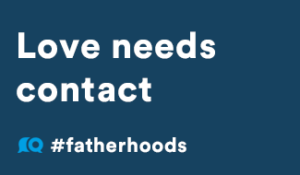When the court is asked to determine which parent a child should live, or what the child arrangements should be, they are directed to what is known as the Welfare Checklist within Section 1 of the Children Act 1989. Part of that checklist is ‘the ascertainable wishes and feelings of the child concerned (considered in the light of his age and understanding).
Therefore your child’s wishes and feelings can be taken into account when deciding what the child arrangements should be. This however only forms one part of the checklist, and the court will consider all elements of the case such as his physical and emotional needs; the likely effect on him of any change in his circumstances; his age, sex, background and any other characteristics which the court considers are relevant; any harm he has suffered or is at risk of suffering; and how capable each of his parents are at meeting his needs.
There is no hard and fast rule which says that once a child reaches a certain age he can decide for himself, instead the court will take a practical and sensible approach.
So whilst your child’s wishes and feelings will be taken into consideration by the court, this will just make up one element of the case. Another fact in how much weight a court will give your child’s wishes and feelings will be his age / maturity. There is no hard and fast rule which says that once a child reaches a certain age he can decide for himself, instead the court will take a practical and sensible approach. For example, a court will find it difficult to make an order which is against the wishes and feelings of a 15 year old. In each case the child is considered individually. The extent to which their views are taken into account will depend upon the individual child and their individual circumstances.
It should also always be considered that what a child wants may not always be in their ‘Best Interests’ which is the overriding principle within Children Act Proceedings.
Courts are also very hesitant in making a child a part of the proceedings. Usually if the Court is satisfied that it is an appropriate case for the child’s wishes and feelings to be ascertained a professional will be instructed to speak with the child in an age appropriate manner. This would usually be an officer from The Children and Family Court Advisory and Support Service (CAFCASS), an independent service from the Court.
The assessment will be done away from the Court in a safe and secure environment such as the child’s school. The work will be carried out in an age appropriate way and ultimately the CAFCASS Officer will provide a report to the Court.
This report will then be a part of the circumstances of the case which the Court will take into account when deciding the Child Arrangements. Whilst a child views are important the law recognises that many other factors are also relevant when making such a decision.
It is important however to understand that your child will not, and should never be asked the question of who he wants to live with. A child should never be forced to make such a choice between parents. Whilst a Court may take his views into account it will ultimately be down to the Court to decide where a child should live if his parents cannot agree.
Posted on July 4, 2018
















